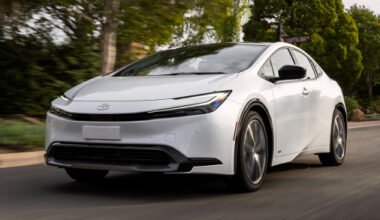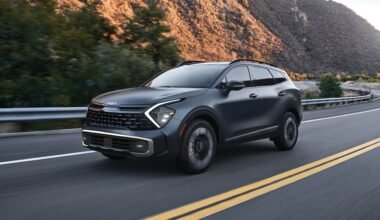In recent years, the automotive industry has been undergoing a significant transformation with the rise of alternative fuel technologies. One such technology that has gained attention is the hydrogen fuel cell vehicle. Hydrogen vehicles are promising options for environmentally conscious consumers who are seeking cleaner transportation alternatives. In this blog post, we’ll delve into what a hydrogen vehicle is and highlight five important things that people should know before considering the purchase of one.
Understanding Hydrogen Vehicles:
A hydrogen vehicle, often referred to as a hydrogen fuel cell vehicle (FCV), is an eco-friendly transportation solution that uses hydrogen gas to generate electricity within a fuel cell. This electricity is then used to power an electric motor, which propels the vehicle forward. The most significant advantage of hydrogen vehicles is that their only emission is water vapor, making them an attractive option for reducing greenhouse gas emissions and air pollution.
5 Things to Know Before Buying a Hydrogen Vehicle:
1. Hydrogen Infrastructure: One of the primary challenges facing hydrogen vehicle owners is the lack of a widespread refueling infrastructure. Unlike gasoline or electric charging stations, hydrogen refueling stations are still relatively limited in number, especially outside major urban centers. Prospective buyers need to ensure that there are sufficient refueling stations along their usual routes to make owning a hydrogen vehicle feasible.
2. Environmental Benefits: Hydrogen vehicles offer remarkable environmental benefits. By utilizing hydrogen as a fuel source, these vehicles produce zero tailpipe emissions, helping to improve air quality and combat climate change. However, the overall environmental impact also depends on how the hydrogen is produced. Green hydrogen, produced using renewable energy sources, is the most sustainable option, while grey hydrogen, derived from natural gas, is less eco-friendly.
3. Cost Considerations: Hydrogen vehicles can come with a higher price tag compared to traditional gasoline-powered vehicles or even electric cars. This cost disparity is due in part to the relatively complex technology involved in producing, storing, and utilizing hydrogen fuel cells. Additionally, the limited availability of these vehicles can impact their resale value. Prospective buyers should carefully evaluate the long-term cost benefits and incentives available in their region.
4. Performance and Range: Hydrogen vehicles offer comparable performance to conventional gasoline-powered vehicles, with quick acceleration and a smooth driving experience. However, the driving range of hydrogen vehicles can sometimes be a concern. While advancements in fuel cell technology have improved range over the years, it’s essential to ensure that the vehicle’s range meets your daily commuting and travel needs.
5. Maintenance and Servicing: Maintaining a hydrogen vehicle is similar in many ways to maintaining a traditional internal combustion engine or an electric vehicle. However, due to the complex nature of fuel cell technology, specialized training and equipment may be required for servicing. Potential buyers should research the availability of qualified technicians and authorized service centers in their vicinity.
Conclusion:
Hydrogen vehicles hold great promise as a clean and sustainable mode of transportation. As the automotive industry continues to innovate, hydrogen fuel cell technology presents a compelling alternative to traditional gasoline-powered vehicles. However, potential buyers need to consider factors like refueling infrastructure, environmental benefits, costs, performance, and maintenance before making a purchase decision. By understanding these key aspects, consumers can make an informed choice that aligns with their values and transportation needs while contributing to a greener future.






